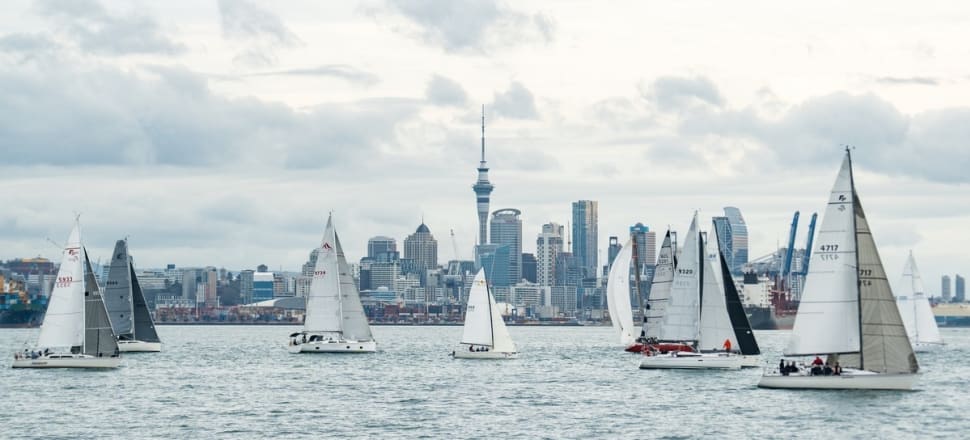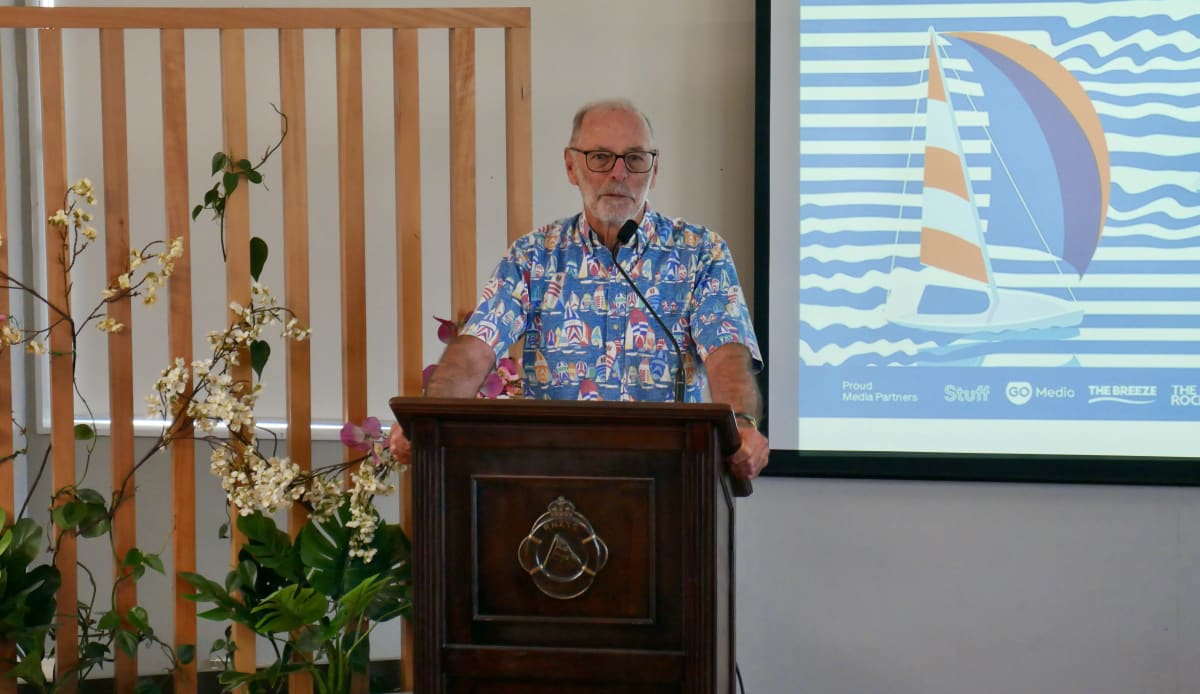
The council-controlled organisation in charge of events in Auckland hopes to make waves with an annual month-long ocean festival
There are hopes that a new yearly festival focused on Auckland’s marine sector will give Auckland Council’s events arm a more sustainable and reliable pipeline of events.
The first Moana Auckland, a month-long lineup of sea-faring events, will run from February 24 to March 24 in 2024.
READ MORE:
* Yearly events could be the shot in the arm Auckland needs
* Conferences bring $755m to Auckland
Events such as the Auckland Boat Show, Z Manu World Champs, New Zealand Millennium Cup superyacht regatta, Sculpture on the Gulf, Harbour Classic and the new Wooden Boat Festival will take place at the same time, with a fan hub at the Viaduct.
Though the event hopes to bring in millions of dollars for the region and boost Auckland’s booming maritime industry, the event organisers say it also represents a big shift towards the kind of events the region relies on.
Former Tall Black Chris Simpson, the head of major events at the council-controlled Tātaki Auckland Unlimited, said over the last decade or so the organisation has relied too heavily on major events that are one-off boosts to tourism and the economy, but don’t repeat and take years to plan.
He should know – he was part of the team that started the bid for New Zealand to share the FIFA Women’s World Cup with Australia. That work began in 2008.

Major event planning is a long-term game, Simpson said. At the moment, organisers are already looking at 2025 and beyond.
It’s also one that’s grown steeply more competitive in recent years, with New Zealand trying to match bids with Australian states that have had less budgetary constraints since the pandemic.
“Competition really heightened after our lockdown, particularly with the Australian states, who were investing in the tens of millions,” Simpson said. “It became very hard. Then others increased their hosting fee, so it all became more and more challenging.”
With last year’s annual budget from Auckland Council reducing funds to the organisation by $34.5 million and the Covid-prompted Regional Events Fund due to run out next year, the team at Tātaki Auckland Unlimited have had to rethink how they operate.
Simpson said they looked to Australia and saw how Melbourne and Sydney had a stable lineup of events that attracted visitors to the city every year.
“For us to be serious about growing global events, we need to look over the ditch and see how Australia does it,” Simpson said. “The answer is having seasonal anchor events… we should have been doing this however many years ago.”
He pointed to Vivid Sydney and the Australian Open in Melbourne as the kind of annual events Auckland should aspire to.
This year, 3.28 million people attended the Sydney festival of lights and music, which has been running for 12 years, and the Australian Open has brought crowds to Melbourne every January for 118 years.
Simpson is hoping Moana Auckland can have similar longevity.
“We looked at what kind of events can we really grow... that have a commitment for them to be here for 50 years,” he said. “And what are our points of difference? One of the lowest-hanging fruits is we are globally known for our ocean.”
The event was formally launched at the New Zealand Royal Yacht Squadron at Westhaven Marina.
Auckland Mayor Wayne Brown brought his own regatta – a shirt emblazoned with multi-coloured yachts.
He told the crowd the festival would be a celebration of what made Auckland a great city to live in.
“To celebrate our connection as a city with the water is the absolute right thing to do and I congratulate Tātaki on doing this,” he said. “It is the right thing, I’ve been on and on about how we need to do more with our harbour.”

Brown said if you went to the bottom of Queen Street and turned left, you’d find yourself in the “essence of a wonderful city” but if you turned right you’d be in “an industrial part of Czechoslovakia”.
It’s a reference to Brown’s floated idea of turning the land that the Ports of Auckland sits on into publicly useable recreation space.
New Zealand Maritime Industry Association executive director Peter Busfield said the Viaduct was the product of investment in Auckland’s maritime sector – a move being repeated by this festival.
“Going back to the year 2000, when you walked down the bottom of Queen Street and you turned left, it was Czechoslovakia also – a storage of timber of petroleum tanks,” he said. “It was actually for the America’s Cup and legislation that bypassed resource consent and built the Viaduct Harbour in a matter of 18 months, and now tourists coming to Auckland will spend three or four days there, whereas in the year 2000 they spent eight hours.”
Busfield said events meant more than the event itself – but have widespread impacts for adjacent sectors and create jobs.
“They provide lifeblood for a city in bringing international guests and provide growth… it will bring focus on New Zealand from international travellers and around the country, and indeed the marine industry itself – we’re in pretty good stead, we just need to continue to promote – and this will certainly help us.”
Over 40 percent of New Zealand’s $3 billion maritime industry operates out of Auckland.
Preliminary numbers from Tātaki Auckland Unlimited expect the festival to generate $27m for Auckland. This is projected to increase to $40m in 2025.
Most of the events under the new banner already exist, but Simpson said the connection of them all by brand and by timeframe would pay dividends.
“Already there were a lot of content and events that were all acting independently, so we’ve brought them all for one period of time,” he said. “That’s so we can target the eastern seaboard of Australia – there’s the wooden boat show... maybe the boat show on a week later.”
The hope is these visitors would decide to stay for a while – and then maybe keep on coming back.
Simpson said a yearly event is a stepping stone towards building a sustainable events schedule that can be counted on.
“Going back to the strategy, we have been a bit remiss really – the planning for big events has to go beyond election cycles and yearly budgets,” he said. “And if we can make Moana Auckland a globally known event, we can have events come to us.”
Tātaki Auckland Unlimited’s new strategy is investing in fewer events, but making sure they are major anchor events.
Simpson said the new threshold a regional event needed to exceed was generating at least $3m for the region.







